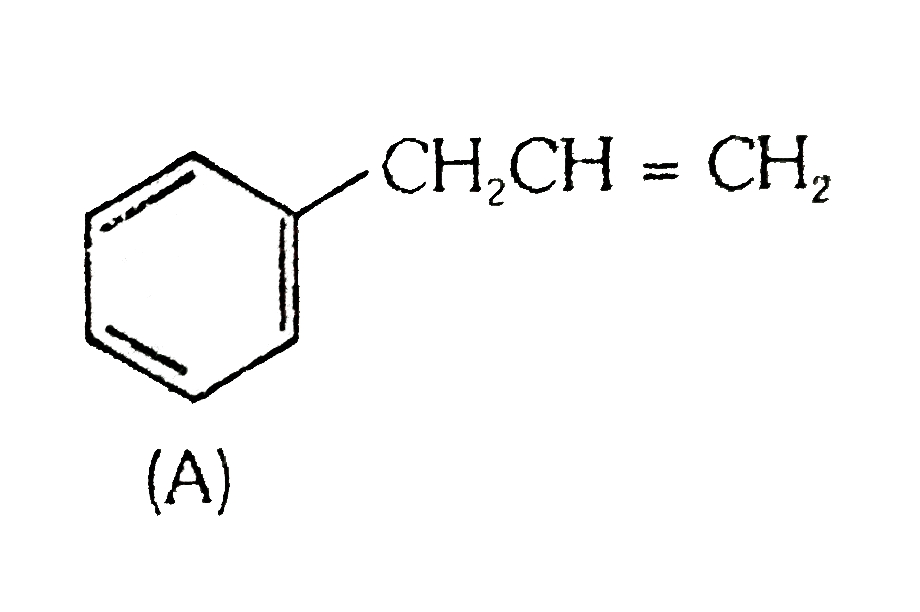Which of the following does not produce any gaseous product when reacts with water?
Ca3N2
CaC2
CaO
Ca3P2
The correct Answer is:C
To solve the question of which compound does not produce any gaseous product when reacting with water, we will analyze the reactions of the given compounds with water step by step.
Step 1: Identify the Compounds
We have the following compounds to consider:
1. Calcium nitride (Ca3N2)
2. Calcium carbide (CaC2)
3. Calcium oxide (CaO)
4. Calcium phosphide (Ca3P2)
Step 2: Analyze Each Compound's Reaction with Water
1. Calcium Nitride (Ca3N2)
- Reaction:
Ca3N2+6H2O→3Ca(OH)2+2NH3
- Products: Calcium hydroxide (Ca(OH)2) and ammonia (NH3).
- Ammonia is a gas, so this compound produces a gaseous product.
2. Calcium Carbide (CaC2)
- Reaction:
CaC2+2H2O→Ca(OH)2+C2H2
- Products: Calcium hydroxide (Ca(OH)2) and acetylene (C2H2).
- Acetylene is a gas, so this compound also produces a gaseous product.
3. Calcium Oxide (CaO)
- Reaction:
CaO+H2O→Ca(OH)2
- Products: Calcium hydroxide (Ca(OH)2).
- No gaseous product is formed in this reaction.
4. Calcium Phosphide (Ca3P2)
- Reaction:
Ca3P2+6H2O→3Ca(OH)2+2PH3
- Products: Calcium hydroxide (Ca(OH)2) and phosphine (PH3).
- Phosphine is a gas, so this compound produces a gaseous product.
Step 3: Conclusion
From the analysis, we find that:
- Calcium nitride (Ca3N2) produces ammonia (NH3) – gas.
- Calcium carbide (CaC2) produces acetylene (C2H2) – gas.
- Calcium oxide (CaO) produces no gaseous product.
- Calcium phosphide (Ca3P2) produces phosphine (PH3) – gas.
Thus, the compound that does not produce any gaseous product when reacting with water is Calcium Oxide (CaO).
Final Answer
Calcium Oxide (CaO) does not produce any gaseous product when it reacts with water.
We have the following compounds to consider:
1. Calcium nitride (Ca3N2)
2. Calcium carbide (CaC2)
3. Calcium oxide (CaO)
4. Calcium phosphide (Ca3P2)
- Reaction:
Ca3N2+6H2O→3Ca(OH)2+2NH3
- Products: Calcium hydroxide (Ca(OH)2) and ammonia (NH3).
- Ammonia is a gas, so this compound produces a gaseous product.
- Reaction:
CaC2+2H2O→Ca(OH)2+C2H2
- Products: Calcium hydroxide (Ca(OH)2) and acetylene (C2H2).
- Acetylene is a gas, so this compound also produces a gaseous product.
- Reaction:
CaO+H2O→Ca(OH)2
- Products: Calcium hydroxide (Ca(OH)2).
- No gaseous product is formed in this reaction.
- Reaction:
Ca3P2+6H2O→3Ca(OH)2+2PH3
- Products: Calcium hydroxide (Ca(OH)2) and phosphine (PH3).
- Phosphine is a gas, so this compound produces a gaseous product.
From the analysis, we find that:
- Calcium nitride (Ca3N2) produces ammonia (NH3) – gas.
- Calcium carbide (CaC2) produces acetylene (C2H2) – gas.
- Calcium oxide (CaO) produces no gaseous product.
- Calcium phosphide (Ca3P2) produces phosphine (PH3) – gas.
Calcium Oxide (CaO) does not produce any gaseous product when it reacts with water.
Similar Questions
Which of the following metal nitrate produces gaseous product when reacts with KCN solution?
View SolutionWhich of the following metal nitrate produces gaseous product when reacts with KCN solution?
View SolutionWhich of the following does not produce any digestive enzyme?
View SolutionChoose the most appropriate answer from the following options :
Which one of the following will not produce an acid when made to react with water?
View SolutionIdentify the product when A reacts with

View SolutionWrite the product when Iron reacts with water.
View SolutionWhich of the following does not react with florime?
View Solutionwhich of the following does not react with HNO2
View SolutionWhich of the following pair of substance give same gaseous product on reaciton with water?
View SolutionWhich of the following compound does not produce green coloured product on thermal decomposition?
View Solution
